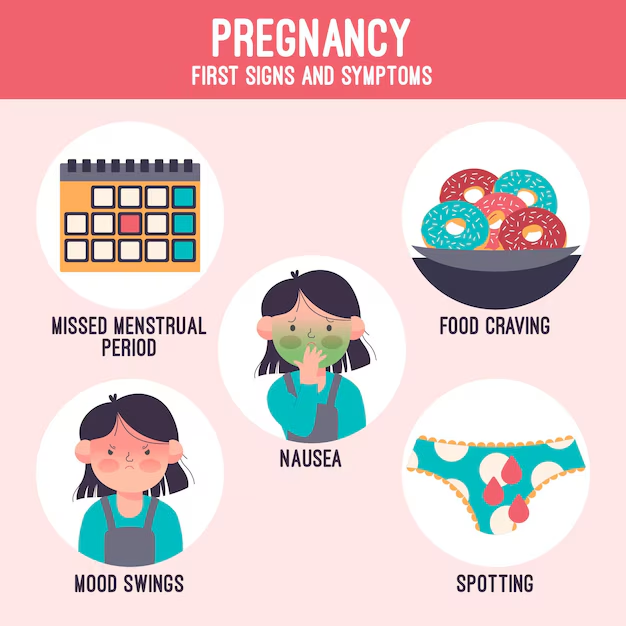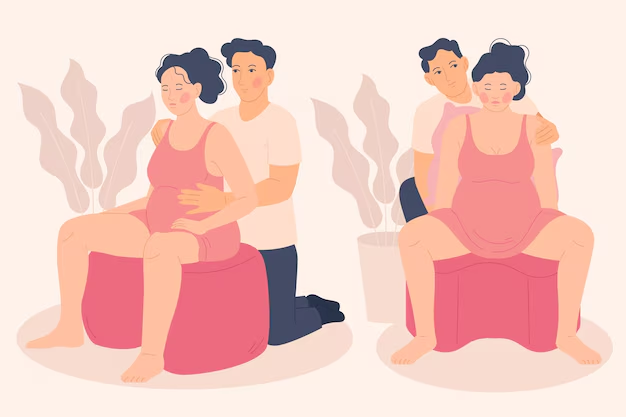Common Symptoms in the First Trimester and How to Manage Them

The first trimester of pregnancy is filled with physical and emotional changes as your body adapts to growing a new life. Many of these symptoms can be challenging, but knowing what to expect and how to manage them can make this phase more manageable. Here’s a guide to the common symptoms you may experience during your first trimester and some practical tips for managing them:
1. Morning Sickness (Nausea and Vomiting)
What It Is:
Morning sickness, which can occur at any time of day, is one of the most common symptoms during the first trimester. It's caused by the hormonal changes your body is going through to support pregnancy.
How to Manage It:
- Eat small meals: Eating five to six smaller meals throughout the day can help keep your blood sugar stable and reduce nausea.
- Ginger: Ginger is known for its anti-nausea properties. Try ginger tea, ginger ale, or even ginger candies.
- Stay hydrated: Drink plenty of fluids, especially if vomiting is frequent. Dehydration can worsen nausea.
- Avoid triggers: Certain smells or foods may trigger your nausea. Pay attention to what sets it off and try to avoid those triggers.
- Rest: Fatigue can make morning sickness worse, so ensure you're getting enough rest.
2. Fatigue
What It Is:
Fatigue during the first trimester is common, as your body is working hard to support your developing baby. Increased progesterone levels can also make you feel more tired than usual.
How to Manage It:
- Take naps: Short naps during the day can help rejuvenate your energy levels.
- Sleep at night: Make sure to get enough sleep at night, aiming for 7–9 hours of restful sleep.
- Stay active: While it may seem counterintuitive, light exercise like walking can increase your energy levels and help you feel less tired.
3. Breast Tenderness
What It Is:
Breast tenderness and swelling are common early in pregnancy due to hormonal changes. You may feel your breasts are more sensitive or sore than usual.
How to Manage It:
- Wear a supportive bra: Choose a bra that fits well and provides support. A sports bra or soft cup bra might be more comfortable.
- Avoid tight clothing: Loose, comfortable clothing will help prevent added pressure on sensitive areas.
- Warm or cold compresses: Applying a warm or cold compress can help relieve discomfort.
4. Frequent Urination
What It Is:
As your uterus grows, it can put pressure on your bladder, causing you to urinate more frequently during the first trimester.
How to Manage It:
- Empty your bladder frequently: Don’t wait until you feel desperate to go. Empty your bladder often to avoid the urge building up.
- Wear comfortable clothes: Loose-fitting clothing can make it easier to visit the restroom frequently.
5. Mood Swings
What It Is:
Hormonal changes in the first trimester can lead to mood swings, causing you to feel happy one minute and emotional or tearful the next.
How to Manage It:
- Talk about your feelings: Communicate with your partner, friends, or family to help relieve emotional stress.
- Practice relaxation techniques: Yoga, meditation, and breathing exercises can help manage stress and regulate your mood.
- Get support: If you feel overwhelmed, don’t hesitate to talk to your healthcare provider. Emotional support can make a big difference.
6. Food Cravings and Aversions
What It Is:
Pregnancy hormones can alter your taste preferences. You may find yourself craving certain foods or developing an aversion to foods you normally enjoy.
How to Manage It:
- Eat what you can: If you’re craving a specific food, try to give in (in moderation).
- Balanced diet: While cravings are common, it’s important to maintain a balanced diet for you and your baby.
- Avoid triggers: If a certain food or smell makes you feel nauseous, avoid it as best as possible.
7. Bloating and Constipation
What It Is:
Increased progesterone levels slow down your digestive system, which can cause bloating and constipation.
How to Manage It:
- Increase fiber intake: Eat high-fiber foods like fruits, vegetables, and whole grains to keep things moving.
- Stay hydrated: Drinking plenty of water helps prevent constipation.
- Gentle exercise: Light exercise can help relieve bloating and promote bowel movements.
8. Spotting or Light Bleeding
What It Is:
Spotting or light bleeding can happen in the early stages of pregnancy, often due to implantation when the fertilized egg attaches to the uterine lining.
How to Manage It:
- Monitor the bleeding: Spotting is usually normal, but if it turns into heavier bleeding, contact your doctor.
- Rest: If you're experiencing spotting, it's a good idea to rest and avoid strenuous activities until you can get medical advice.
9. Dizziness
What It Is:
Dizziness in the first trimester is usually due to hormonal changes that affect your blood pressure and blood sugar levels. It can also happen when you stand up too quickly.
How to Manage It:
- Stand up slowly: Take your time when getting up from a sitting or lying position to avoid dizziness.
- Eat regularly: Make sure you're eating balanced meals throughout the day to maintain stable blood sugar levels.
- Stay hydrated: Dehydration can contribute to dizziness, so drink plenty of water.
10. Headaches
What It Is:
Headaches are common in early pregnancy due to hormonal changes, increased blood volume, and changes in blood pressure.
How to Manage It:
- Stay hydrated: Drink plenty of fluids to avoid dehydration, which can trigger headaches.
- Rest in a dark, quiet room: If you're experiencing a headache, lying down in a quiet space can help.
- Avoid triggers: If certain foods or activities trigger your headaches, try to avoid them.
Related Articles

How to Share the News: Announcing Your Pregnancy in the First Trimester

Baby development at 18 weeks

Baby development at 34 weeks

Baby development at 32 weeks

Baby development at 28 weeks

Mental Health During Pregnancy: Taking Care of Your Emotional Well-Being

How to Talk to Your Doctor About Menstrual Issues

Tracking your energy across the cycle